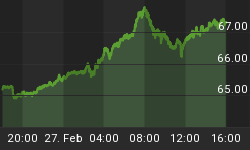Ahead of crucial elections in Turkey, the lira took a bit hit and Turkish President Recep Tayyip Erdogan is fuming, with Turkish regulators launching investigations into JP Morgan may have purposefully caused the currency volatility.
Turkey’s Banking Regulation and Supervision Board (BDDK) and Capital Markets Board (SPK) have now launched separate investigations into banks and JP Morgan following volatility in Turkish markets.
“We have received complaints that some banks led clients to buy foreign currencies in a manipulative and misleading way. Our agency has launched an investigation and a probe, and the necessary administrative and judicial processes will be conducted,” the banking regulator said in a statement on March 23 without naming the banks.
The two watchdogs also said in separate statements that they have launched investigations into JP Morgan over a "misleading and manipulative" report issued by the investment bank on March 22. The statement said that the investigation was launched after the boards received complaints that JP Morgan's report undermined the reputation of Turkish banks and led to volatility in financial markets.
JP Morgan, which has yet to respond, had noted in its report that it saw a high risk that the lira would decline after local elections set for 31 March, recommending clients to go "long" on the U.S. dollar, as many other banks also did. Related: Federal Reserve Downgrades U.S. Growth And Cuts Rate Hikes
During a live television interview late March 24, Turkish President Recep Tayyip Erdogan fumed over the latest currency depreciation, which came a week before the elections that he previously declared as crucial for his party.
"Some people are trying to provoke us again. They are trying to push up foreign currencies. If you are involved in such provocative attempts, you will pay a heavy price. We know your identities and we know what you are doing," Erdogan said, adding that "the BDDK took some steps" and more action will be taken by the Treasury and Finance Ministry.
The U.S. dollar gained more than 4 percent against the Turkish Lira on March 22, before retreating to 5.62 on March 25.
The Lira's partial comeback was largely due to the Central Bank's statement on March 25, which incentivized investors to switch to the Turkish currency by raising swap limits.
The bank also stressed that earlier reports about its shrinking foreign currency reserves were misleading, as their cause was "ordinary" sales of forex to energy-importing firms and foreign debt payment. It said that it maintained a policy of accumulating reserves.
Related: Disney Beats Out Comcast In $71.3B Mega-Merger
On March 22, the Central Bank had said that considering the developments in financial markets, it decided to suspend the one-week repo auctions for an undetermined period.
The latest polls ahead of the March 31 local elections suggest that Erdogan's ruling Justice and Development Party (AKP) could lose several key mayoral seats, including Istanbul and Ankara.
Turkey’s main index BIST100 was down 3.45 percent at Friday’s close, while the banking index had declined 6.64 percent as Turkey's CDS dramatically rose in recent days.
By Charles Benavidez for Safehaven.com
















